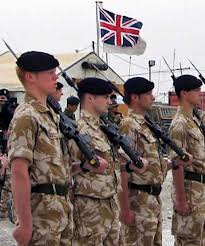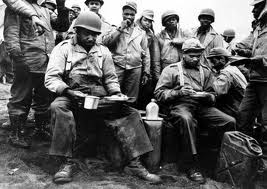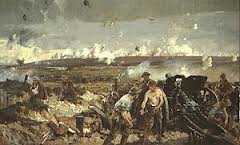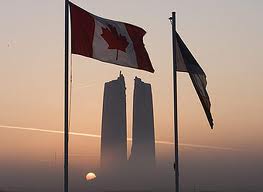We would watch the police come and go,but not much seemed to happen on our street and they never seemed to stop much.Once we were playing street hockey and they stopped to chase us,but we gathered everything and ran away.Sometime when you played hockey on the street they would take all of your sticks and make you go to the police station to get them back.
At times we would see a police car turn on his lights and race through a red light.If it was ten to eleven at night it often meant he was on his way to a fast food outlet and wanted to get there before they closed at eleven.Everything seemed to close at eleven in those days.Seeing the cops do that would make my father angry and he would say he wasn't paying taxes so they could do that.I didn't guess I begrudged them a meal though when they were working to protect us.
One December two cops were killed while investigating a kidnapping.It was a sensational crime for Moncton,and it commanded the attention of the community for a long time.Our neighbor was what we would call today a police groupie of sorts-right wing,no nonsense from anybody,strict law and order.He had a police scanner,which was a radio that could receive police and other emergency frequencies.All week end long,while the manhunt was on for the cop killers we sat around in our neighbors living room listening to the scanner,trying to catch any news of the unfolding events.It seemed very busy,but anything pretaining to the killings was being scrambled,so all we would hear was static.We did get to hear the other call though.Things like loud party complaints,and barking dogs,and people urinating in public,and auto accidents.That sort of thing.
Before Christmas my father bought a scanner so we could listen in to the police too.Our neighbor supplied us with a list of all the police codes so we knew what they were talking about.For the most part,they were talking about auto accidents,barking dogs,loud parties and people urinating in the streets.After the killings,Moncton went back to being the quiet town it was most of the time.Sometimes there were unusual,but not especially serious things going on.Like someone mowing their lawn in the middle of the night,or kids throwing the old paper bag on to someones doorstep on Halloween.There were checks for outstanding warrants and vandalism and routine traffic stops as well.Really,listening to the scanner was not all that entertaining.When I got older some of the names of kids I knew came over the scanner,as they came into contact with police for one reason or another.What really seemed odd though was hearing the police going about their business,but not seeing them all that much.And even though most of what went on seemed routine,I got much more of an appreciation for what it was they did,and how busy they really were.
At times we would see a police car turn on his lights and race through a red light.If it was ten to eleven at night it often meant he was on his way to a fast food outlet and wanted to get there before they closed at eleven.Everything seemed to close at eleven in those days.Seeing the cops do that would make my father angry and he would say he wasn't paying taxes so they could do that.I didn't guess I begrudged them a meal though when they were working to protect us.
One December two cops were killed while investigating a kidnapping.It was a sensational crime for Moncton,and it commanded the attention of the community for a long time.Our neighbor was what we would call today a police groupie of sorts-right wing,no nonsense from anybody,strict law and order.He had a police scanner,which was a radio that could receive police and other emergency frequencies.All week end long,while the manhunt was on for the cop killers we sat around in our neighbors living room listening to the scanner,trying to catch any news of the unfolding events.It seemed very busy,but anything pretaining to the killings was being scrambled,so all we would hear was static.We did get to hear the other call though.Things like loud party complaints,and barking dogs,and people urinating in public,and auto accidents.That sort of thing.
Before Christmas my father bought a scanner so we could listen in to the police too.Our neighbor supplied us with a list of all the police codes so we knew what they were talking about.For the most part,they were talking about auto accidents,barking dogs,loud parties and people urinating in the streets.After the killings,Moncton went back to being the quiet town it was most of the time.Sometimes there were unusual,but not especially serious things going on.Like someone mowing their lawn in the middle of the night,or kids throwing the old paper bag on to someones doorstep on Halloween.There were checks for outstanding warrants and vandalism and routine traffic stops as well.Really,listening to the scanner was not all that entertaining.When I got older some of the names of kids I knew came over the scanner,as they came into contact with police for one reason or another.What really seemed odd though was hearing the police going about their business,but not seeing them all that much.And even though most of what went on seemed routine,I got much more of an appreciation for what it was they did,and how busy they really were.
























































